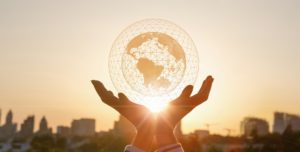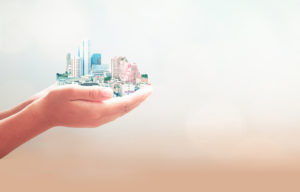With physical distancing I have had to change my usual morning run.
Having been displaced from Manhattan, I had to reorientate from my usual East River Greenway run into uncharted territory.
As this new pandemic spreads around the country and world, we are all struggling through uncharted territory. Hopefully, we will come out on the other side to critically examine what went wrong. Our experience has changed America and the world.
This is a time of prolonged stress, fear, and unknown future, both immediate and long term. Common concerns are; ‘when will we peak?’, ‘will we flatten the curve?’, ‘will there be enough PPE for our frontline healthcare workers?’, and ‘should we wear masks?
Globally we have a new shared reality. Where are you during the pandemic? and “how are you coping with this uncertainty?”
We are emotionally and psychologically in this together. As New Yorkers, we feel a helplessness that is not unfamiliar. We’ve experienced this before, with 9/11 and Hurricane Sandy.
Collective trauma is an experience of psychological reaction to a tragedy that happens to a group and the ongoing collective attempts to make sense of it. If we are not directly on the frontlines in hospitals or emergency rooms, we do struggle every day with the possibility of falling ill and dying. We are all suffering on some level.
There is relief in knowing that there is a collective felt sense that “we are all in this together.” Caring for humanity and individuals, both abstractly and practically, is healing. We attempt to make sense of this existential threat both individually and communally. Our desire to care for the other is transcendent, and by caring for the other, we connect with the best part of ourselves.
This leads me back to my caring instinct and desire for connection during my simple effort to feel healthy during the pandemic….my uncharted run.
I did the same loop for three days, at the same time of the morning. I kept passing the same older woman, walking slowly but determinedly and little tilted to one side. I imagined the tilt was years of compensation for scoliosis, we waved. Today, I decided to say hello from more than a 6 feet distance. I learned that she was 91 and had been a child of the kindertransport from Germany during the Holocaust. She was no stranger to dislocation and suffering existential threat, although this time of a very different nature.
Continuing, I came upon a delivery truck pulled to the curb. The driver was a young man donning a mask and blue plastic gloves. He was taking a break. I motioned to him in a gesture, hand to heart, to thank him for risking his safety to deliver needed goods to the general public. He nodded, and I asked about how he was doing? When he rolled down his window, I learned he was a 24-year-old Kurdish immigrant whose family came to Nashville, Tennessee in 2006. He came to NYC to study and was now in school to become a nurse. I mentioned that I had read a slew of articles about how delivery persons are the new frontline, putting themselves at risk for their jobs.
The irony was not lost on me. Here was this young man, who survived a war in Iraq, hoping through education in America to promote himself from deliveryman to healthcare worker, both workers now working without PPE.
My curiosity about these strangers and my wish to connect, one being to another, in the face of despair and uncertainty during this time, is healing. These encounters allowed me to feel respect and genuine caring for these people, who at any other time would have remained unknown to me.
If you are seeking additional support in these challenging times, check out my resources page.

